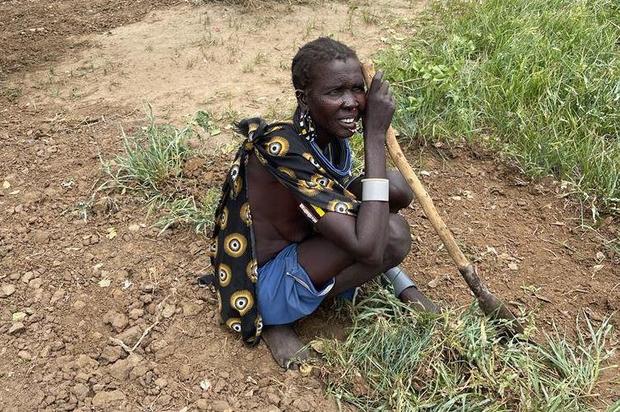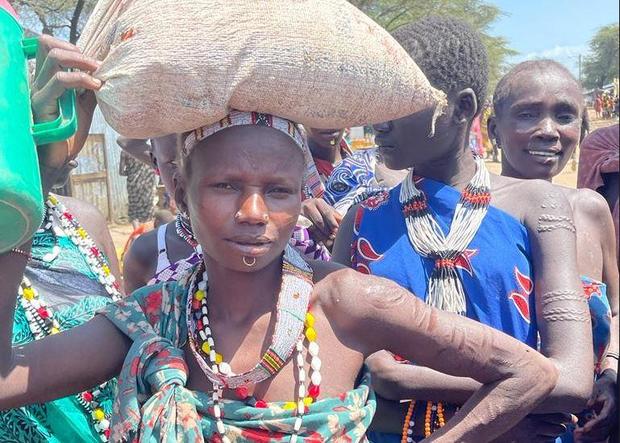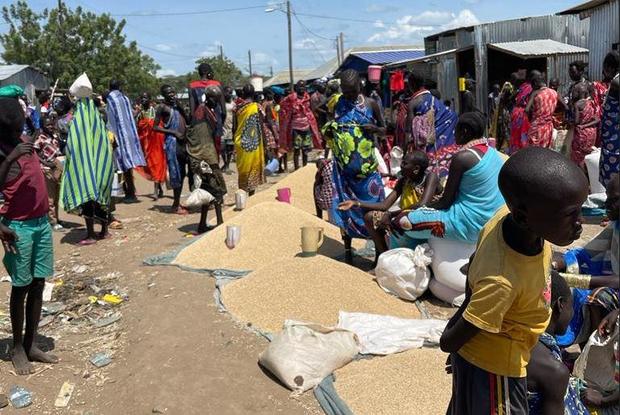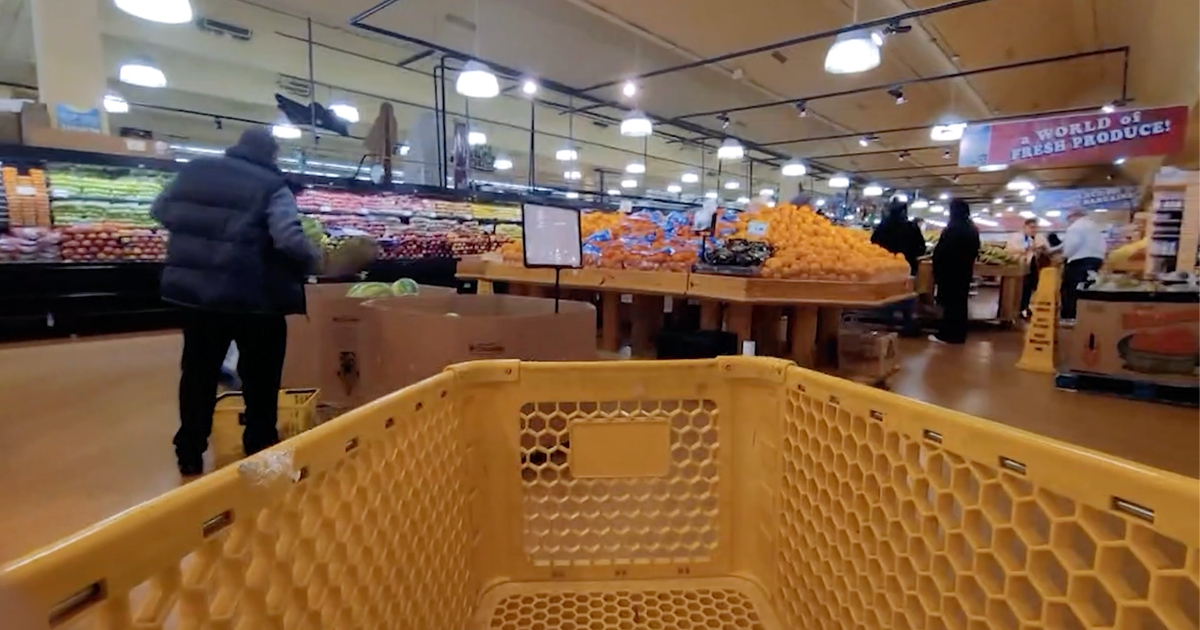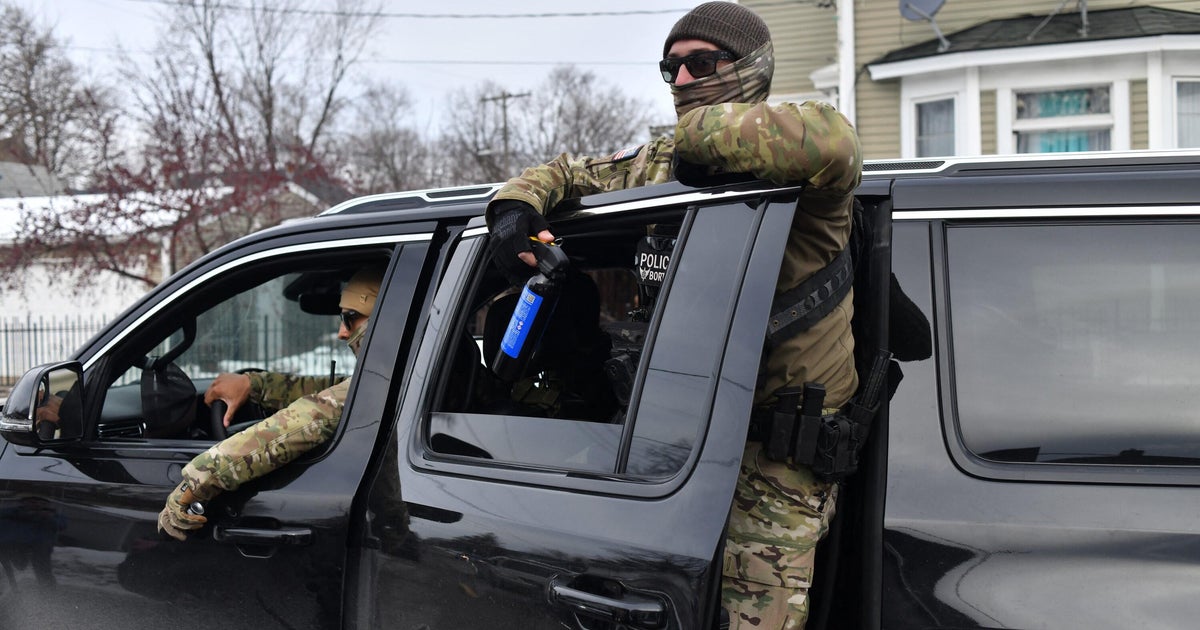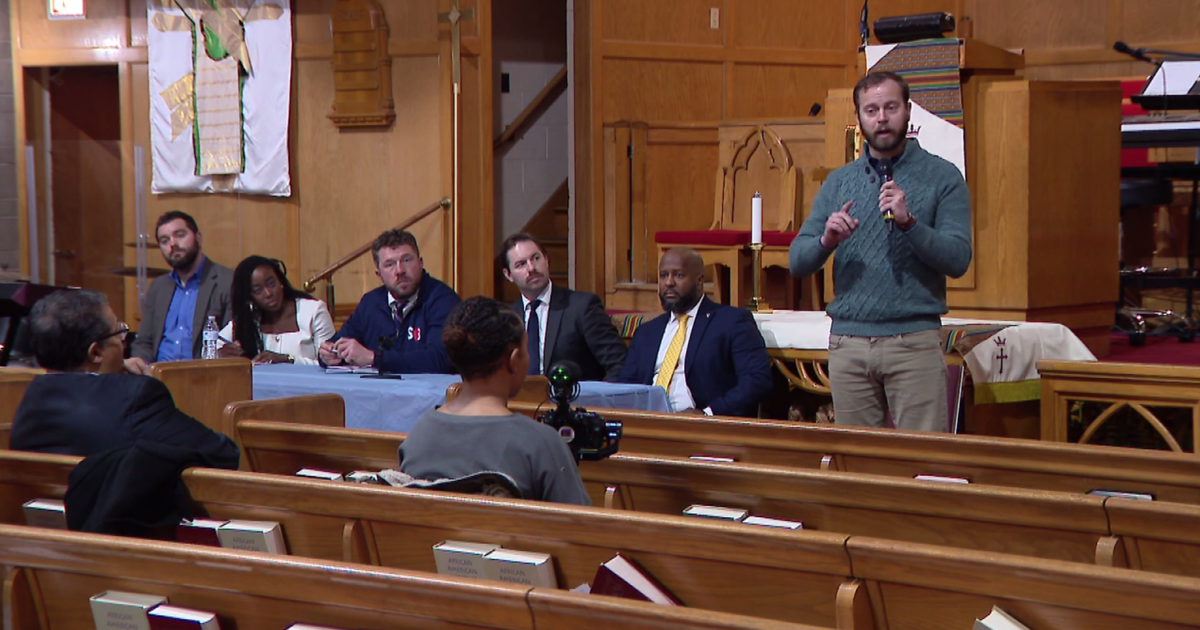"Tell them we are starving," beg South Sudanese as food aid dries up because "White people are at war" in Ukraine
Kapoeta, South Sudan — Global leaders at the G7 summit pledged $4.5 billion this week to battle food insecurity worldwide. That help can't come soon enough for millions of people in South Sudan who are on the brink of starvation.
CBS News foreign correspondent Debora Patta visited one of the hardest hit regions. She arrived just after the first rainfall in 18 months — cause for celebration that brought local children out to dance in the streets.
But the greenery belies a drought-stricken village. In the farm fields all around, the soil is bone dry.
Nachopera Lomuria once lived off the land, but she told Patta nothing grows in the parched earth any more. Her mother starved to death last year, and Lomuria is convinced that she's next.
"If the food stops coming, you won't find me alive next time you visit," she said.
The United Nations' World Food Program was her only lifeline, but that has now been severed.
"I'm terrified," she admitted. "Please, keep giving us food."
Acting country director Adeyinka Badejo told CBS News the organization had to suspend aid to nearly 2 million people in South Sudan because of rising fuel and food costs amid the war in Ukraine.
"We're having to take from the hungry to feed the starving," she told Patta, "because if you are surviving on one meal a day and even that one meal is no longer there, then you are facing famine."
There is a market in the town of Kapoeta, but it takes a day for many of the locals to get there, and grain is in short supply there, too.
Napir Marko was at the market, but told CBS News she had no food aid, and she couldn't afford to eat.
"We heard they stopped the assistance because the White people are at war," she told Patta.
There's a lot of truth in that rumor. The market couldn't be further away from Ukraine, but Vladimir Putin's blockade of Ukraine's Black Sea ports has had a direct impact on the cost of food in South Sudan. Ukraine has long been a key supplier of grain to the world, but it has been unable to ship those vital food supplies to Africa and other regions because of the blockade.
The crisis has helped to send the cost of staple goods soaring nearly 100% in South Sudan.
"We don't have enough food because we do not have enough resources," the WFP's Badejo told Patta. "The needs in South Sudan are enormous. Three out of four people do not have sufficient food to eat. Three out of four people are facing severe levels of hunger and this is caused by the continuing conflict. You have three years of unprecedented floods in South Sudan. You have the economic impacts of the COVID-19 pandemic, and now we are seeing a consequence of the war in Ukraine."
Sophie Valentino is among those feeling the pinch.
"My main message to the world is to stop unnecessary wars so that when there is peace, the U.N. will be able to focus and buy the food to supply to the needy countries," she said.
Her salary as a high school teacher doesn't go far these days, as prices at the market have doubled.
Lomuria, who CBS News spoke to in her family's scorched farm field, can't even afford to put clothes on two of her children, who ran around naked during Patta's visit.
Her final bag of food aid will last barely two weeks.
"We just need food," she kept saying. "You must help us… Tell them we are starving."
